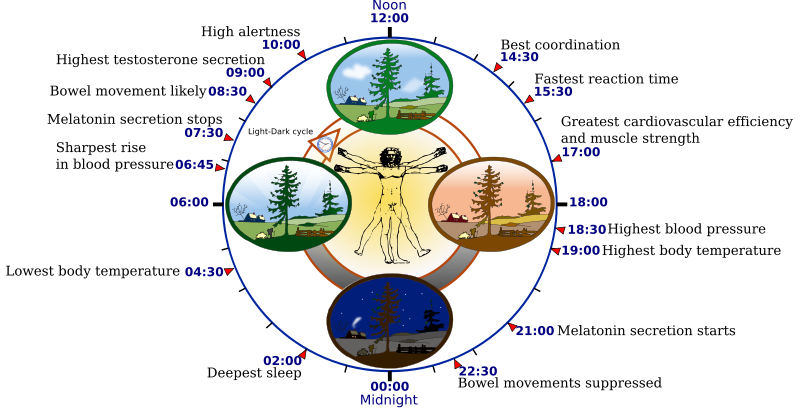Silver Linings: Listening to your inner circadian rhythm
Too often in graduate school we are running around as sleep-deprived, stressed-out zombies that just can’t juggle all the tasks we have to fulfill and drop a ball here and there.
What if I tell you that I have never worked after 10pm in my entire PhD career (provided that you don’t count a conference dinner as “work”)? I’ve been tired and sleep-deprived at times, but eventually I have learned to honor my circadian rhythm and give my body the rest it needs. By now, I wake up early in the morning without needing an alarm clock, and I feel rested and refreshed.
Once I understood that my body functions differently over the course of a day, my productivity increased so much that I could go home most days before dinner, having ticked off all my tasks for the day from my to-do-list.
It takes some experimenting.
It takes some time to learn to actually listen to your body. If you’re a researcher, chances are that you live from your shoulders upwards. But baby, there’s a whole lotta wisdom programmed inside the rest of you.
It takes some guts to go against the flow and decide you are not going to live on tall coffees and little sleep anymore.
It takes some major prioritizing as well.
But if you’re willing to take the leap, then start to tune in with yourself by paying attention* to the following:
1. Alertness during the day
When do you feel sluggish? When are you performing at your best? How can you schedule your tasks around these moments of the day?
2. Sleeping and waking times
If you don’t put an alarm clock, when do you wake up – how much sleep do you really need? If you are completely sleep-deprived, it might take some time before your sleeping and waking times regulate themselves. But try sleeping earlier for a while – larks and owls are pretty much half/half of the world’s population, but in graduate school, it looks like everyone is an owl. There are too many larks trying to fit themselves into an owl schedule!
3. Response to stimulants
Once you’re clean with possible caffeine, sugar and fatty junk food addictions, you can tune into yourself and see how you really react to these stimulants. Most likely, you’ll experience the rush and the dip that come with the change in blood sugar levels.
4. Response to exercise
If you’ve been in the lab until 10pm, is it a good idea to go for a run and then crash down into your bed? Most people get too energized from exercise, so experiment and see when you get the best results: early morning, in the afternoon, in the early evening or late at night?
*If you want to learn something from your body, you’ll need to take it very very easy on the caffeine and sugar. Otherwise, you’ll only see/feel the results of those spikes and drops in your blood sugar levels.

